Cladding (lamination of different metals), OVIONE (functional resin-coated metal strip), Molten-Solder Plated Metals, Multigauge processing, and other additional processes are applied to metal materials to provide materials with additional functions that cannot be obtained with a single metal material alone. The addition of these functions at the material stage allows the customer to omit post-processing and improve quality.
Connectors, Resistors, Inductors, Motors
Various combinations are available. Please contact us for details.

Our lineup of composite metal materials is as follows.
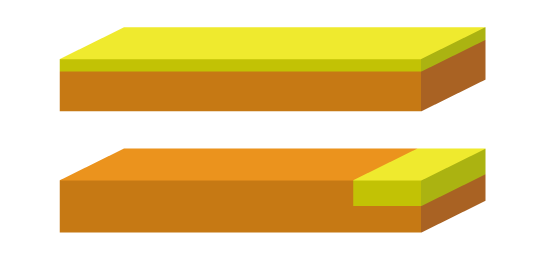
Clad Metals are the materials consisting of two or more different metals bonded together.It is a highly functional metal material with composite properties that cannot be obtained with a single material.
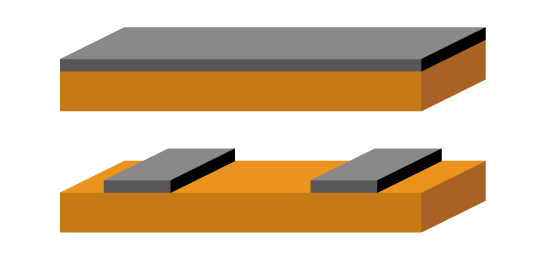
OVIONE™ Coat is a pre-coated material made by baking resin onto metal materials.
Depending on the purpose, functions such as insulation, smooth surface (low friction), and color can be added.
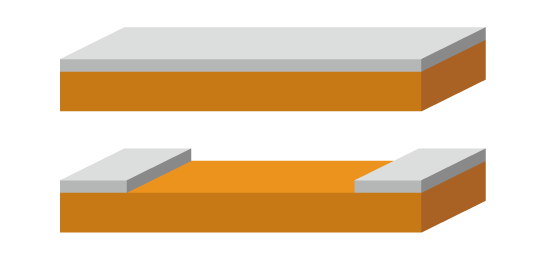
Molten-Solder Plated Metals is a material in which a thin layer of molten solder is pre-coated on the base metal surface.The boundary surfaces between the base metal and the solder are diffusion bonded, so there is less concern about delamination as in plating.It is often used as a pre-soldering and has a significant effect on workability and productivity.
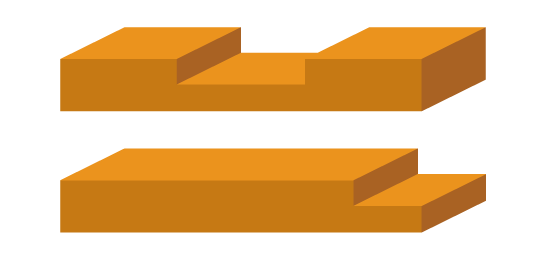
Multi-Gauge Metals are materials with unusual and special cross-sectional shapes such as concave and convex.
Since it is pre-formed, users can save cost by reducing processes and improving quality.
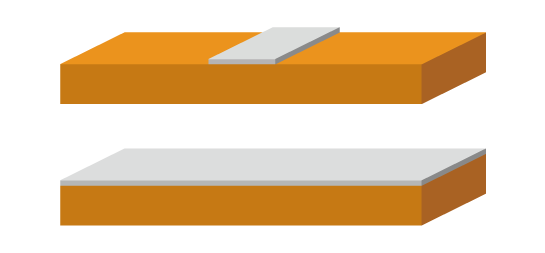
A thin covering of metal such as Au, Ag, Ni, Sn, Sn reflow on top of another metal.
Although the plating process itself is outsourced, we provide final quality assurance including material and post plating process.
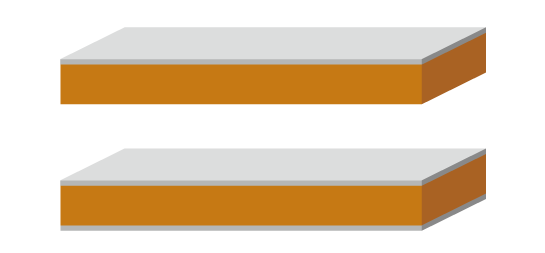
Plated Rolled Materials are materials are that have been cold rolled and heat treated after plating to improve adhesion over normal plating.
It combines the good points of plating and clad metals, which allowing customers to reduce costs and improve quality.
Below is the chart of main added properties of each composite metal material
There are many possibilities beyond those listed, so please contact us for more details.
Please scroll horizontally to view.
| Composite Metals | Main Added Properties |
|---|---|
| Clad Metals | Conductivity, Electrical Resistance, Thermal Conductivity, High Strength, Spring Properties, Light Weighting, Magnetism, Workability, Thermal Expansion |
| OVIONE™ Coat | Insulation, Corrosion Resistance, Heat Resistance, Chemical Resistance, Coloring, Smooth Surface (Low Friction), Stain Resistance |
| Molten-Solder Plated Metals | Solderability |
| Multi-Gauge Metals | Pre-Forming, Pre-Processing |
| Various Types of Plating | Conductivity, Solderability, Magnetism, Corrosion Resistance |
| Plated Rolled Materials | Conductivity, Solderability, Magnetism, Corrosion Resistance |